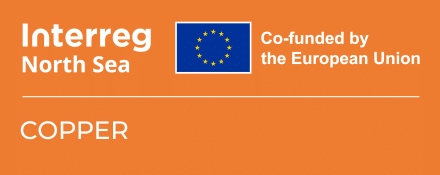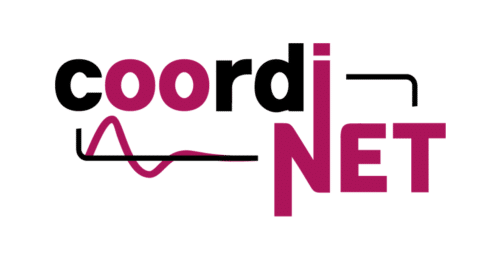InterConnect

The InterConnect project concluded its activities in March 2024. On this page, you can discover its results and key learnings.
The energy transition has led to the emergence of several initiatives and technology solutions in the EU. However, the challenge is ensuring interoperability of these different technologies so that end users can select and switch technology providers without having to substitute their appliances. Interoperability is essential to interconnect and integrate digital homes, buildings, and electric grids. To this end, InterConnect gathered 50 European entities to demonstrate how to leverage digital technologies (Artificial Intelligence, Blockchain, Cloud and Big Data) to guarantee interoperability between equipment and systems while ensuring the privacy and cybersecurity of user data.
The concept of the project is the Semantic Interoperability, which is the ability of digital systems to exchange data withunambiguous and defined meaning :
1. The cross domain Semantic Interoperability Framework (SIF) in the domain of buildings and homes, deployed the concept of semantic interoperability into practice on a large scale, at an unprecedented maturity level and size.
2. The DSO Interface concept and platform developed in InterConnect leverages on the SIF to enable the communication between DSOs and household devices. This technology allows data transactions between DSOs and service providers for a more efficient system operation and to integrate consumers into the energy value chain. More information can be found in the E.DSO paper on the DSOi.
In late 2022, InterConnect further took on the challenge of creating the foundations for a Common European Reference Framework for Energy (CERF) under request of the Commission. In the context of the CERF, the SIF and DSOi were used to drive the capabilities of new and existing consumer mobile applications.
3. The Interoperable Recommender was developed to bridge the domains of the SIF and the DSOi and provide energy recommendations based on predicted scenarios and real-time grid measurements. This Interoperable Recommender is InterConnect’s third key exploitable result.
Hard Facts

Objectives
The InterConnect project brought together the whole value chain via its partners within R&D institutions, manufacturers, DSOs, retailers, IT providers, and energy users. Specific competencies in ICT, IoT, energy, data science, and software were also added. Several important associations, like E.DSO and EEBUS, relating to ICT and energy are further involved to ensure a greater impact across all of Europe.
The solutions developed within the scope of InterConnect were tested in eight large-scale pilots. The tested flexible and open ecosystem unlocked demand-side flexibility from smart homes, buildings, and communities contributing to the successful democratization of energy management.
These pilots will take place in Belgium, France, Germany, Greece, Italy, the Netherlands, and Portugal, and include various DSO. In particular: E-REDES, HEDNO, STEDIN, ENEDIS and ELEKTRO LJUBLJANA.
E.DSO and DSOs
The development of semantic interoperability offers key benefits for DSOs as it enhances the ability to integrate and use data from various sources. By using the SIF, DSOs can significantly enhance their operations, improve service quality, and support the evolution of the energy sector toward a more efficient, reliable, and sustainable future.
On its side, the DSOi enables the interoperable data exchange between the DSO and other market parties. If the SIF allows for the translation of existing data models to make them interoperable, the DSOI leverages on the SIF to enable the communication between DSOs and household devices. The DSOi is a non-proprietary and fully available interface that can be implemented by any DSO to unlock the following benefits:
- The interface enables the mobilization of demand flexibility in household electricity consumption which is crucial to manage the grid in a more efficient manner.
- Enhances network visibility for home appliances which are mostly passive and not actively monitored.
- Allows for the direct communication of the electricity system needs to end users.
The use of semantic interoperability is in line with the EU goal of developing CERF based consumer energy-saving applications. These applications combined with the use of the DSOi and the Interoperable recommender, enable DSOs to send signals to end users to address specific location-based needs as demonstrated by E-REDES in the Portuguese Pilot.
What was the role of E.DSO?
Since the beginning of the project,E.DSO was involved in knowledge sharing and dissemination activities. Moreover, E.DSO took the leadership of task 13.5. assessing the results from the different pilots and providing recommendationsfor the CERF. These will provide the foundations for the development of the 2nd generation blueprint of the CERF which will be conducted by the ECLIPSE project.
More Information
Deliverables:
- All public deliverables
- Functional Specification of DSO Standard Interface Application
- Services and use cases for smart buildings and grids
- D 13.5 Results from Pilots and final contributions to CERF
- H2020 InterConnect Project Overarching Perspective
Articles:
- Empowering The Energy Transition: The Importance Of Interconnect’s DSOi Standard Interface
- Tackling rising electricity bills by empowering consumers and giving them options for action
- Smart Grids and Smart Buildings: Open innovation and Cybersecurity
- Joint declaration on aspects related to the upcoming EU Action Plan on digitalizing the energy sector
- The value of the digital transformation: Opportunities for DSOs
- Facilitating customers energy data management and interoperability -DSOs’ perspective
Contact: projects@edsoforsmartgrids.


